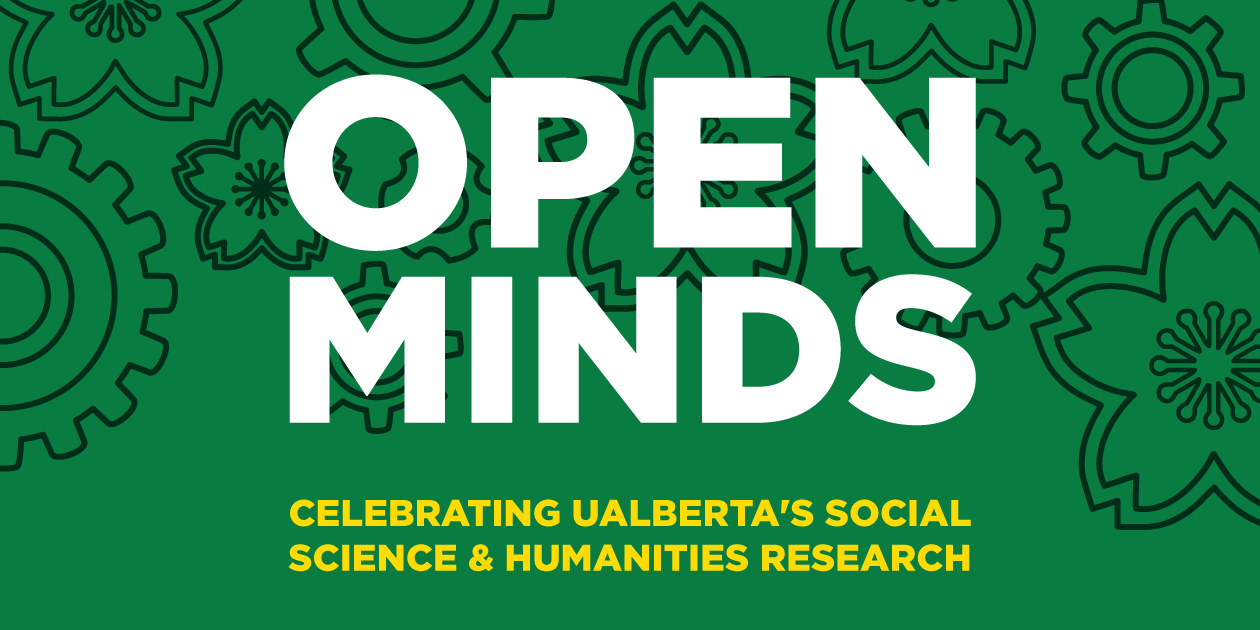
Celebrating UAlberta's Social Sciences and Humanities Research at Open Minds 2020
Humanities and social science research opens minds and helps shape a better, brighter future by advancing our understanding of social, cultural, political, legal, technological, economic and environmental issues. The work of scholars in the humanities and social sciences help us understand the world we live in - and gives us the tools to imagine a future that works for all of us.
Each year, the Office of the Vice-President (Research and Innovation) and the Kule Institute for Advanced Study co-hostOpen Minds in celebration of talented and innovative humanities and social sciences colleagues at the University of Alberta.
This year's event will take place on Wednesday, February 5 from 4 p.m. - 6 p.m., in room 2-115, Education North and will feature lightning talks from researchers funded by the Social Sciences and Humanities Research Council of Canada (SSHRC).
Researchers from the Faculty of Arts:
● Temitope Oriola (Sociology): Inchoate suicide missions: Deathly resistance among female Boko Haram captives
Research into suicide terrorism often focuses on successful missions of males. This study explores failed suicide missions of female Boko Haram captives. It asks why, despite being indoctrinated, women and girls fail to detonate their suicide bombs. It then asks these women and girls, who managed to escape serving as human bombs, how to make sense of their experiences. Analysis of their lived experiences aims to contribute to social policy by developing counter radicalization/extremist strategies.
● Ken Williams (Drama): Indigenous Dramaturgy
Currently, there is no dramaturgical model that is welcoming and effective for Indigenous theatre creators within mainstream Canadian theatres. The process for creating new plays in Canada is conventionally known as dramaturgy and is still dominated by a settler perspective, which is often an imposition on Indigenous storytelling. Most theatres don't have the cultural knowledge to develop this work effectively. The investigators are looking at models for dramaturging new work from Indigenous theatre creators. The initial step was called "Witnessing."
Complete list of speakers:
● Rob McMahon, Faculty of Extension
Taking digital literacy to the land: Piikani cultural and digital literacy camp program
● Anne-Jose Villeneuve, Campus Saint-Jean
Challenging the myth of 'good' and 'bad' French
● Rebecca Sockbeson, Faculty of Education
Indigenous Knowledge Mobilization: A Purposeful Collaboration Between Higher Education & Aboriginal Communities
● Glen Hvenegaard, Augustana
How Effective are Interpretive Programs in Alberta Provincial Parks?
● Temitope Oriola, Faculty of Arts
Inchoate suicide missions: Deathly resistance among female Boko Haram captives
● Patricia Boechler, Faculty of Education
Virtual Environments and Learning
● Ken Williams, Faculty of Arts
Indigenous Dramaturgy
● Runjuan Liu, Alberta School of Business
A Sorted Tale of Globalization: White Collar Jobs and the Rise of Service Offshoring
Program of speakers begins at 4 p.m. A reception will follow. Registration for the event is not required but much appreciated.
Please register here.
More information here.